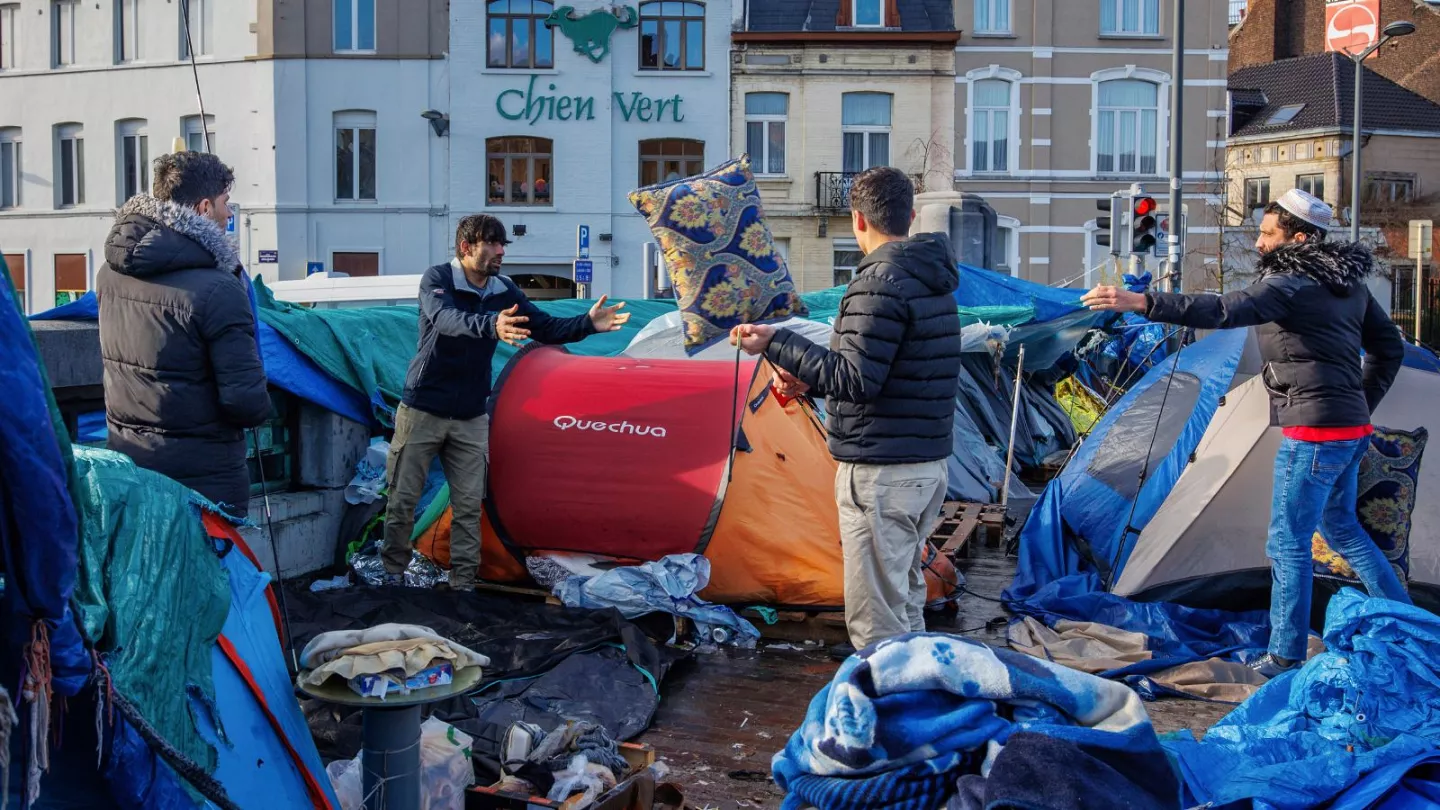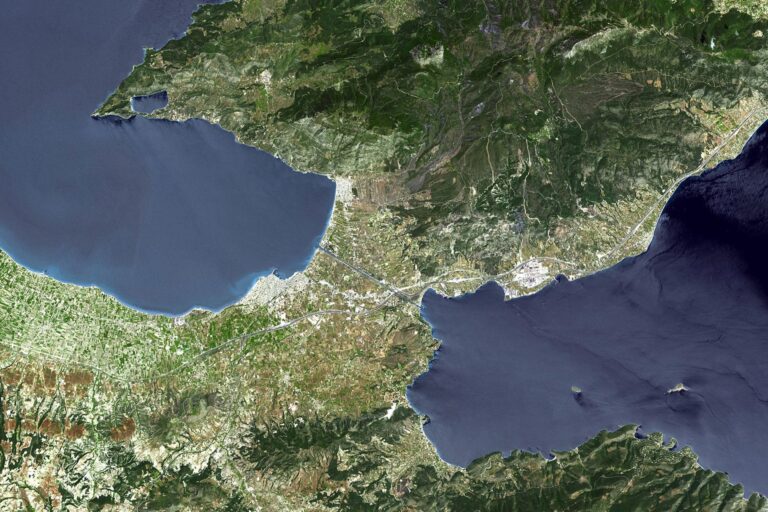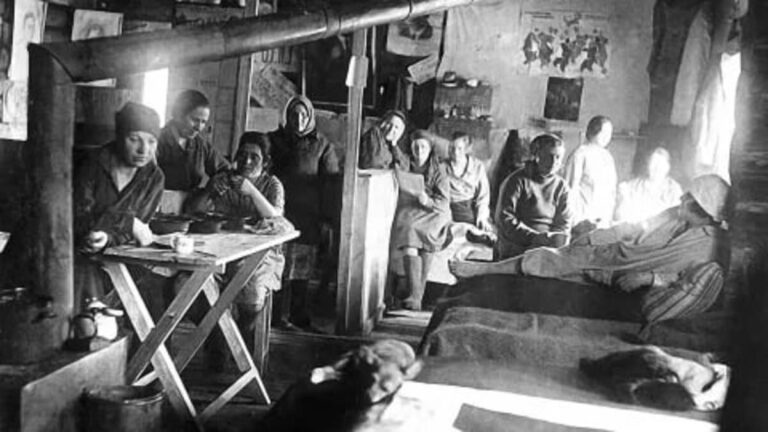As Belgium says it will no longer provide shelter for single men seeking asylum, an expert explains the background to many journeys.
The Belgian government said recently it would temporarily no longer provide shelter for single men seeking asylum, arguing that families, women and children should be prioritised.
Last Wednesday, State Secretary Nicole de Moor said increasing pressure on asylum housing was expected over the coming months and she wanted “absolutely to avoid children ending up in the streets this winter.”
Instead, single men will have to fend for themselves.
It’s provoked an angry response, with the Brussels region and Amnesty International among those calling on the government to change its mind. The European Commission said it would contact Belgian authorities on the issue.
There has been a backlash towards men claiming asylum in other circumstances too.
When 500 men were initially moved on to the Bibby Stockholm barge in the south of England, in a UK government attempt to avoid spending money on hotel accommodation, it came up again and again when local people were interviewed.
“The only issue is that so many people arrive on the boat and they are all men. Where are the families? Where are the wives and children?,” one person was quoted as saying to the BBC.
Others were more explicit.
“I’m very concerned, I’m scared, me and my children come to the seaside, the beach here,” another woman said. “How are we meant to do that with 500 men?”
Why men make the journey
According to the EU Agency for Asylum, male applicants last year accounted for 71% of asylum claims.
However, experts and campaigners point out that there are reasons why men are often the ones to make the journey.
Professor Nando Sigona, the chair of International Migration and Forced Displacement at the University of Birmingham in the UK, says men are seen as the main breadwinner in many countries and are engaged in more public-facing activities including being expected to join the army.
“These make them also more likely to be a target in a situation of political and social turmoil,” he added.
Professor Sigona added that “the journey to Europe is dangerous and expensive, and raising enough money for all members to seek protection abroad is difficult, so often men are sent abroad first to secure an income to support the family and also a safer route to international protection via family reunion.”
However, he added that, with more restrictive approaches being taken in many countries against the family reunion route, “we have seen more children and women taking dangerous crossings and risking their lives. This is the case both in the case of irregular crossings in the Mediterranean and across the English Channel.”
He said a lack of communication with local communities adds to the fear felt by those who have new neighbours and don’t know anything about their background.
“Asylum seekers are often accommodated in already poor and marginalised areas and their presence is perceived as a further form of exclusion by some local residents,” he said. “Communication with local communities is often forgotten and people are placed in areas without prior discussion.”
On the Belgian plan, he said it “doesn’t seem to add up”.
“Women with children and families are a minority of those in the asylum system,” he said. “While it is obviously important that they have a shelter for the winter, it is unlikely that all single men have to be denied shelter to accommodate them.”
He felt the real aim is “punitive towards single applicants further reinforcing the wrong public perception that they are abusing the system and dangerous”.
In a document the campaign group Care4Calais hosts on its website, it states “the young men you see on these boats are doing their best to protect their families. Their mothers, grandmothers, sisters, babies, daughters. How often does a father say they’d die for their daughter, a husband say they’d die for their wife? Well these guys are putting it into practice.”
Source: Euronews







